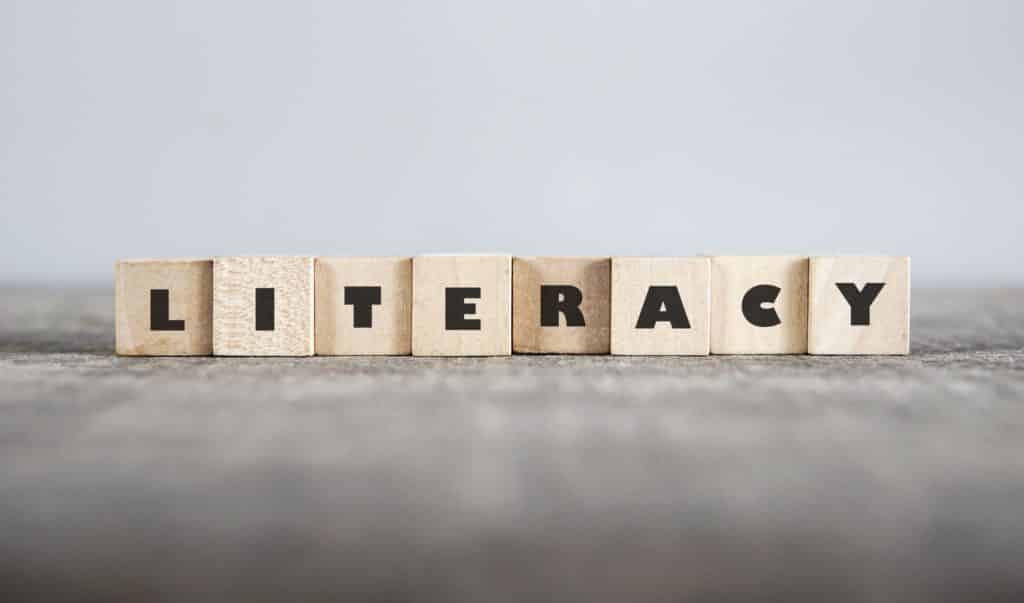What is a Reading, Language, and Literacy Doctorate?
A reading, language, and literacy doctorate program focuses on providing educators with the theory and practical application behind literacy instruction. Literacy includes every component of reading and writing instruction in the K-12 classroom. While a reading, language, and literacy doctorate is not as common as a doctorate in reading or literacy, the primary focus, as well as the skills, of the program are the same.
The reading, language, literacy doctorate, or RLL as it is often referred to, adds the layer of exploring the strong correlation between literacy and language and how it impacts reading and writing instruction. However, any doctorate program for reading or literacy will focus on the research, theory, and application behind the science of reading and practical literacy instruction.
Programs in this educational space teach foundational reading skills and explore each component of reading, including phonological awareness, phonics, fluency, vocabulary, and comprehension. It dives into the purposes and uses of assessment, both formative and summative, in reading. It also teaches reading diagnostics, how to interpret reading diagnostics, and how to support children who may be identified with reading difficulties or disabilities. There is a focus on diversity, appropriateness, and accessibility of text, both digitally and in print. Educators in this program will also gain knowledge about connecting reading to writing through instruction, reading across the content, and the teaching of reading to struggling readers K-12.
Most individuals who are seeking a doctorate in this space are most interested in becoming a reading specialist or a district literacy coach at the elementary or secondary level. Therefore, practicums or internships in schools shadowing a reading specialist or literacy coach are essential to the success and completion of program. In this capacity, the candidate for the doctoral degree gains on-the-job training working directly with students and coaching teachers. They get the experience of both leading and implementing a literacy culture and climate that best supports the needs in that school.
The final step required in a doctorate program in reading, language, and literacy is to write a dissertation on issues including a policy, research-based instructional practice, theory, or trend in the literacy world. This process solidifies the research and application conducted by the candidate of the course of a few years and shows the person is ready to enter a new educational path.
Reasons to Earn a Reading, Language, and Literacy Doctorate
There are a number of reasons to earn a reading, language, and literacy doctorate in today’s educational climate. As of 2019, according to the National Assessment of Educational Progress, only 34% of nine-year-old students were reading on grade level. There is a great deal of work to do in reading education in America, so educators earning their doctorate in this specific field will be greatly appreciated and needed.
Schools around the country from elementary schools to middle schools and high schools are adding reading specialists, Title I reading teachers, interventionists, and literacy coaches. Districts are seeking experts in literacy for curriculum-based and other leadership positions to support the reading and language arts departments. There is a demand for people to fill these positions; therefore, someone with a doctorate will be highly sought after for their knowledge and expertise.
Not only is there an increase in salary, but also the opportunities for career advancement are far greater. An individual with a reading, language, and literacy doctorate is qualified to teach at the college or university level. This individual can lead research or serve as the CEO for literacy non-profit organizations or educational corporations. This person is also qualified as a guest expert on literacy for media and publications.
Many individuals who pursue a doctoral degree may also end up writing a book or educational articles to support their educational colleagues in the field. They are often asked to lead professional development for their own school district or serve as a presenter for a statewide or national reading conference.
While the majority of individuals who seek a doctorate in reading, language, and literacy are looking to gain a greater understanding of the teaching of reading, the options that can be presented to them professionally are vast. A doctorate degree increases the educator’s salary, value, and expertise. Thus, they have more of a freedom and flexibility to seek positions and opportunities that match their professional and personal lifestyle, as well as their career goals.
Things to Consider Before Pursuing a Doctorate
The first question someone should ask before pursuing a doctorate is if in fact it is really needed to achieve particular career goals. If a doctorate degree will greatly advance your specific career goals, then the next factor to consider is if someone has the financial resources to complete the post graduate program. If so, then you determine if you have enough time and energy to commit to the years of work necessary to pursue a doctorate degree.
Before embarking on this journey, you must have experience in your field. In education, it is highly recommended that you are a classroom teacher for three to five years before even pursuing a master’s degree. Once a master’s degree is earned, educators often transition into leadership positions to use their graduate degree for at least another few years before pursuing a doctorate.
To provide support for educators who want to advance their educational career, many school districts create cohorts. The cohorts give selected dedicated employees the opportunity to earn their doctoral degree through a local university at little to no cost. Some school districts offer yearly financial support as a benefit for employees wanting to further their education by taking classes.
Universities also offer financial aid packages for educators who are accepted into their post-graduate programs. While a doctoral degree can certainly be beneficial for school administrators who want to increase their salary, experience, and knowledge base, it is not actually necessary. Educational careers that do require a doctorate degree include directors of departments like curriculum and instruction, superintendents, or college professors.
Once someone decides a doctorate is needed for a desired career goal, determining the amount of time that can be put into the required classes and research for a dissertation is a key element. Finally, the next step is to find the best program or option to support the doctoral degree you want and need to achieve your desired career goals. If a doctoral degree is essential, you are on your way!




